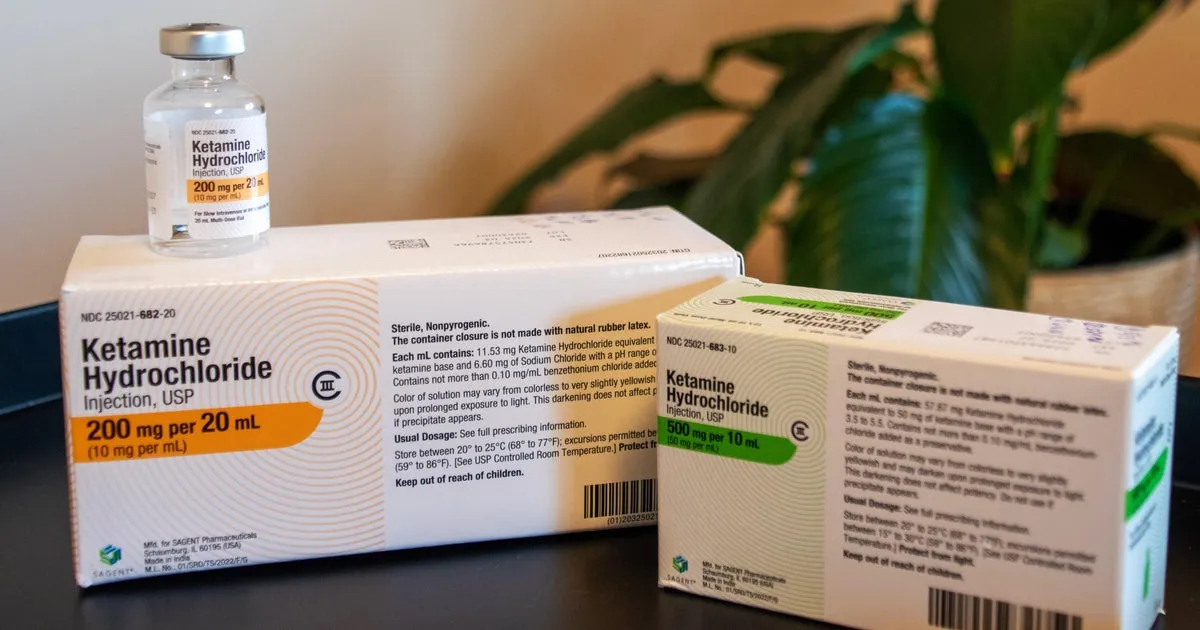
If you or someone you know is experiencing a mental health crisis, it is crucial to seek help immediately. You can contact the 988 Suicide & Crisis Lifeline by dialing or texting 988. This lifeline provides essential support during challenging times.
In Asheville, North Carolina, the story of Waynesville Police Sgt. Paige Shell highlights the profound impact of trauma on first responders. After nearly 20 years in law enforcement, Shell was grappling with severe depression, poor sleep, and suicidal thoughts. The relentless exposure to violence and death had taken a toll on her mental health. Despite her efforts with traditional talk therapy, she found little relief.
When her counselor recommended ketamine-assisted psychotherapy, Shell was initially skeptical. "I didn't know what to expect. I'm a cop. It's a trust thing," she recalled. This innovative treatment combines psychotherapy with low doses of ketamine, a drug historically used as an anesthetic and now gaining attention for its potential to treat severe depression and post-traumatic stress disorder (PTSD).
Ketamine is classified as a dissociative drug that can cause feelings of detachment from one's body and surroundings. Approved by the Food and Drug Administration (FDA) as an anesthetic in 1970, ketamine's reputation has been complicated by its use as a party drug in the 1990s and the recent death of actor Matthew Perry attributed to its use.
However, research suggests that low doses of ketamine can significantly alleviate symptoms of depression. In 2019, the FDA approved esketamine, a derivative of ketamine, as a nasal spray for treatment-resistant depression. Despite its potential, the lack of regulatory oversight raises concerns about the safety and efficacy of ketamine treatments, especially in first responders who often experience high rates of trauma.
According to psychiatrist Signi Goldman, who has incorporated ketamine into her practice since 2017, first responders face a disproportionately high burden of trauma. "Law enforcement officers in the U.S. experience an average of 189 traumatic events over their careers, compared to just two to three for the general population," she noted. This stark difference highlights the urgent need for effective mental health treatment options for those in high-stress professions.
John Krystal, chair of the Department of Psychiatry at Yale School of Medicine, emphasizes that while the evidence for ketamine's antidepressant effects is strong, more studies are needed to explore its role in treating PTSD. The current regulatory landscape for ketamine is fragmented, with over 1,000 clinics operating across the country, often without standardized safety protocols or training for providers.
Ketamine-assisted psychotherapy typically lasts around two hours, with about 45 minutes spent under the effects of the drug. The administration methods can include IV drips, intramuscular injections, or nasal sprays. During treatment, clients often revisit traumatic memories, which can be both challenging and enlightening. "It strips away people's armor," Baker explained, highlighting how ketamine can accelerate the therapeutic process.
However, the financial burden of ketamine-assisted psychotherapy can be prohibitive, often exceeding $1,000 per session. While the Department of Veterans Affairs may cover some forms of treatment for eligible veterans, many first responders struggle to afford the care they need.
Shell's journey into ketamine-assisted psychotherapy was not without difficulty. After a particularly traumatic incident during Hurricane Helene, she decided to pursue this innovative treatment. Despite the emotional weight of revisiting her past experiences, she reported improvements in her sleep and stress management, stating, "I smile more than I used to."
Yet, the stigma surrounding mental health in law enforcement remains a barrier. Many officers fear being perceived as weak or unable to handle their responsibilities. Sherri Martin, director of wellness services at the Fraternal Order of Police, notes that the perception of ketamine as an illegal street drug complicates acceptance within the police community.
Ultimately, Shell's decision to share her experience with colleagues has fostered a supportive environment, encouraging others to seek help. She believes that mental health treatment, particularly ketamine-assisted psychotherapy, has made her a better police officer. "It's hard to help other people when you can't take care of yourself," she concluded, emphasizing the importance of prioritizing one's mental health.